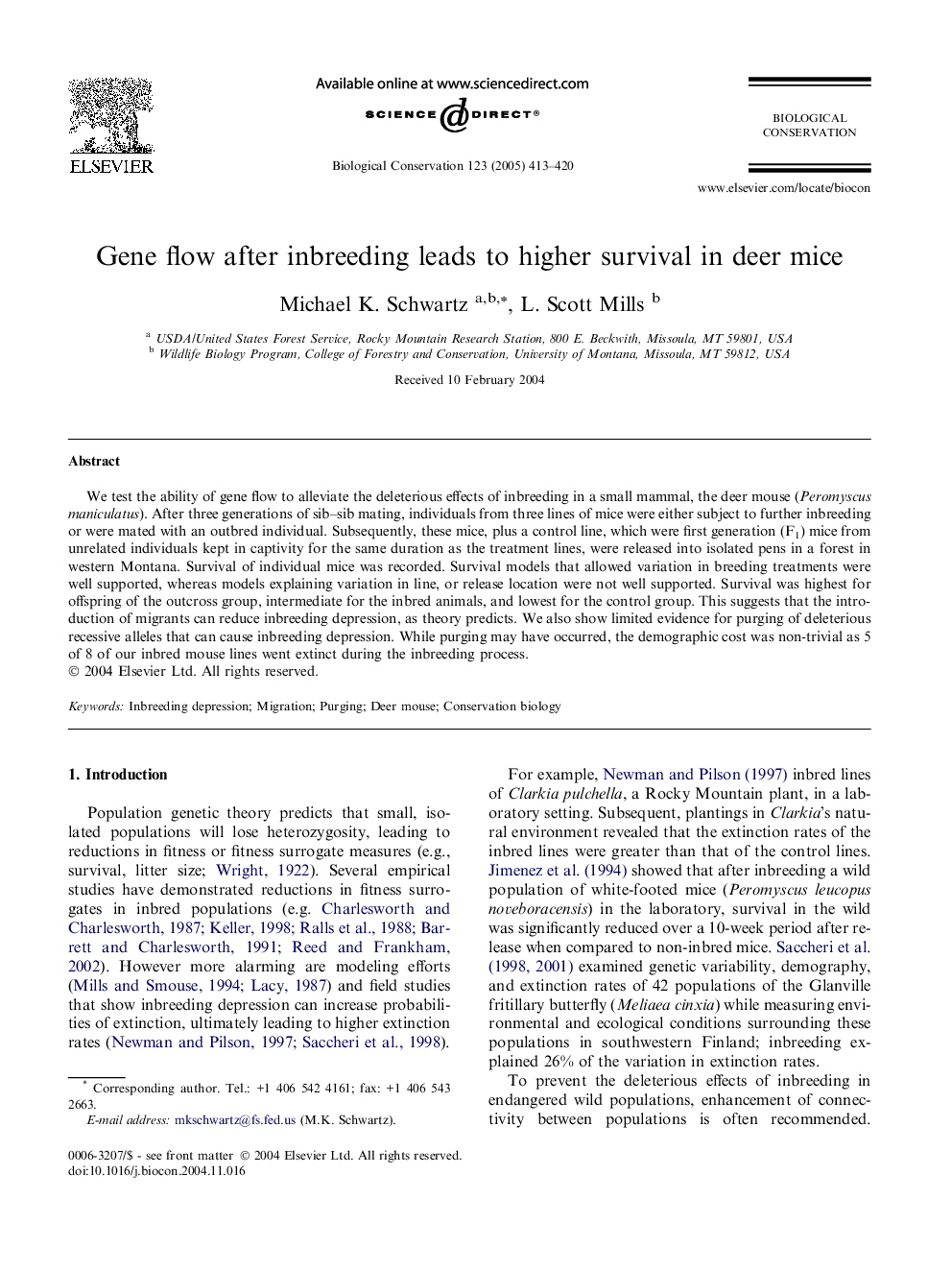| Article ID | Journal | Published Year | Pages | File Type |
|---|---|---|---|---|
| 9446128 | Biological Conservation | 2005 | 8 Pages |
Abstract
We test the ability of gene flow to alleviate the deleterious effects of inbreeding in a small mammal, the deer mouse (Peromyscus maniculatus). After three generations of sib-sib mating, individuals from three lines of mice were either subject to further inbreeding or were mated with an outbred individual. Subsequently, these mice, plus a control line, which were first generation (F1) mice from unrelated individuals kept in captivity for the same duration as the treatment lines, were released into isolated pens in a forest in western Montana. Survival of individual mice was recorded. Survival models that allowed variation in breeding treatments were well supported, whereas models explaining variation in line, or release location were not well supported. Survival was highest for offspring of the outcross group, intermediate for the inbred animals, and lowest for the control group. This suggests that the introduction of migrants can reduce inbreeding depression, as theory predicts. We also show limited evidence for purging of deleterious recessive alleles that can cause inbreeding depression. While purging may have occurred, the demographic cost was non-trivial as 5 of 8 of our inbred mouse lines went extinct during the inbreeding process.
Related Topics
Life Sciences
Agricultural and Biological Sciences
Ecology, Evolution, Behavior and Systematics
Authors
Michael K. Schwartz, L. Scott Mills,
